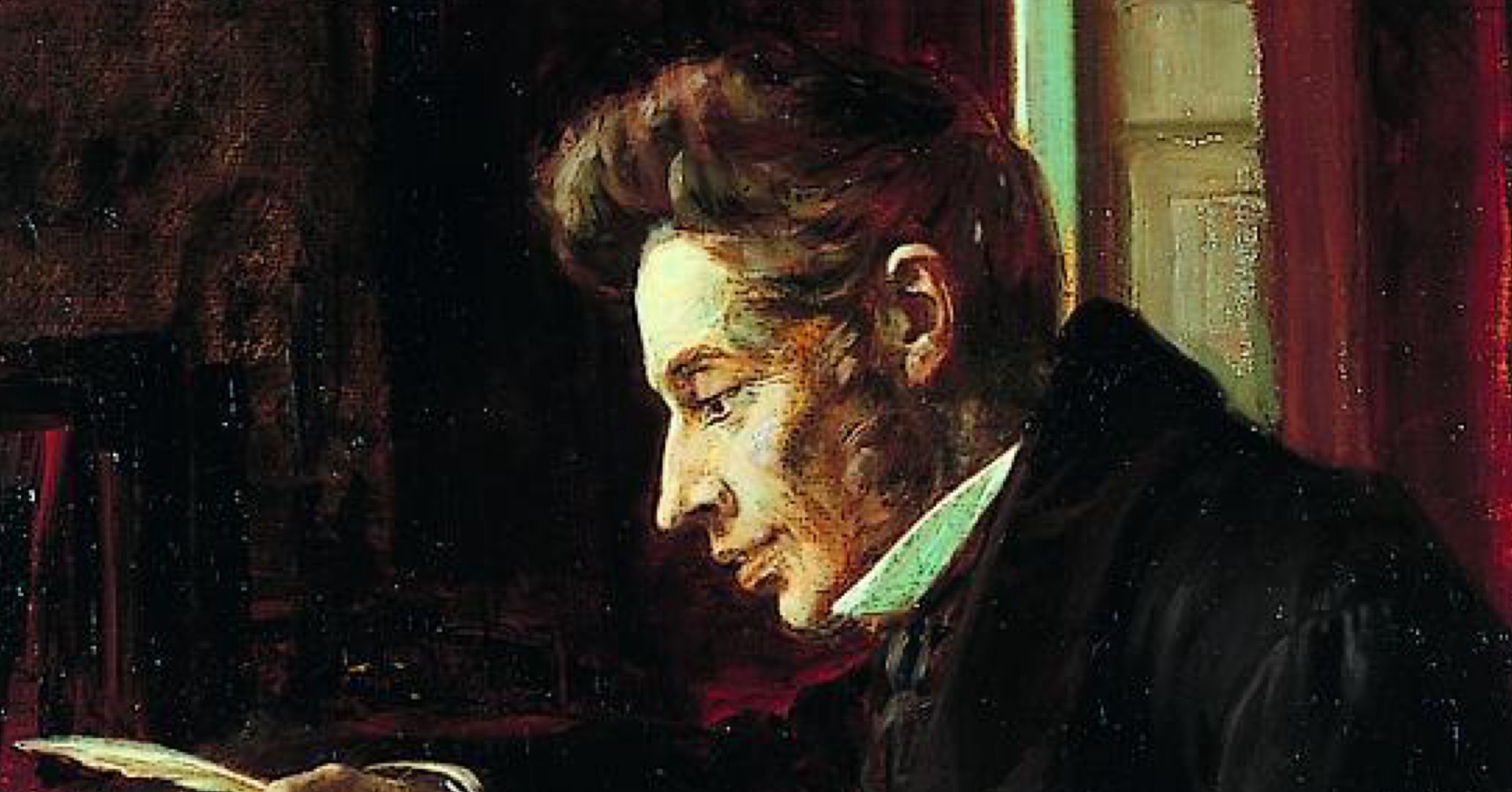Every generation needs a voice that calls the Church back to the centre of faith. Søren Kierkegaard was such a voice. He lived in Denmark almost two centuries ago, when Christianity had become a matter of national identity rather than personal conviction. He saw churches full but hearts unchanged, faith spoken yet rarely lived.
Through his writing he pleaded with believers to remember that Christianity is not a cultural inheritance. It is a living commitment to Jesus Christ. His words still ring with urgency today, reminding us that discipleship means following the Lord in truth, not merely belonging to a system that bears His name.
Faith as Decision and the Leap of Faith
Kierkegaard believed that faith could never be proved by argument or handed down through family tradition. It had to be chosen. To believe was to trust God when life could no longer be managed by reason alone.
He used the phrase “the leap of faith” to describe that moment of trust. This is not a reckless jump into the dark. It is the movement of a heart that trusts when sight runs out. Abraham walking up Mount Moriah with his son was Kierkegaard’s model of such faith. Abraham did not know the outcome, but he knew the One who had called him. Faith, for Kierkegaard, is that same quiet obedience which rests in God even when nothing makes sense.
Faith of this kind is not a matter of words or theories. It is a choice of the will, an act of surrender, and a sign of love.
Faith that Transforms
Kierkegaard challenged the comfortable religion of his day. He exposed the danger of cultural Christianity, where people wear the label of faith but live no differently from those who do not believe.
He asked one piercing question. Do you actually know God, or do you simply know about Him? Truth, for him, was not an idea to be defended but a life to be lived. A person who says one thing and does another has not yet grasped the truth. Genuine Christianity changes conduct as well as conviction.
Faith of this kind is not a possession to display. It is a path to walk. It forms humility, endurance and joy as it grows.
Challenges in His Thought
For all his brilliance, Kierkegaard’s vision is not without its shadows. He focused so sharply on the individual that he sometimes seemed to overlook the Church as community. Yet Scripture is clear that believers grow together, not apart. Personal faith needs the fellowship of others to mature in grace.
He was also suspicious of reason, perhaps because he saw so much pride in the intellect of his age. But faith and reason are not enemies. Within Anglican thought they belong together. Reason helps us to explore the depths of revelation, and faith helps us to walk in it.
At times his writing feels heavy, filled with anxiety and struggle. Yet even there, hope shines through. To stand faithfully before God, he said, even in fear and trembling, is the greatest freedom of all.
What in His Culture Shaped His Vision
Kierkegaard lived in a society shaped by the Enlightenment and by the legacy of state religion. In Denmark, as across much of Europe, Christianity had been the official faith for centuries. Everyone was baptised into the Church, and religious observance had become part of social respectability.
This was not new. Ever since the fourth century, when Emperor Constantine made Christianity the religion of the Roman Empire, the Church had struggled with the tension between spiritual conviction and political convenience. Once faith became a badge of citizenship rather than a costly allegiance, it lost some of its edge. The Gospel that had once turned the world upside down became a means of keeping it tidy.
The same pattern reappeared later in the colonial era, when the faith that began as a radical movement of grace and liberation was too often harnessed to human ambition. Mission and empire became intertwined. The Church’s prophetic voice was softened by its alliance with power.
Kierkegaard saw that same tendency in the Christendom of his own day. Religion had become a structure supporting human progress rather than a call to holiness. His protest was against a Christianity that had forgotten its cross. His answer was to call the believer back to personal encounter and costly discipleship.
Enduring Lessons for Every Culture
Although he wrote in a European city two hundred years ago, Kierkegaard’s warning remains timeless. Whenever faith becomes fashionable, it risks losing its power. Whenever the Church seeks comfort in influence or status, it forgets the scandal of the Gospel.
His insistence on personal faith challenges every culture that treats Christianity as social identity. His critique of pride reminds us that intellect and success can never replace humility before God. And his understanding of obedience speaks to anyone tempted to follow convenience rather than conviction.
These lessons endure in every age. Faith must be lived, not assumed. Truth must be obeyed, not only admired. The Church must be prophetic as well as pastoral, a community of truth rather than a mirror of its surroundings.
A Word for African Anglicans
For Anglicans in Africa, Kierkegaard’s voice sounds both familiar and fresh. The African Church is vibrant and growing, yet it faces the same danger he saw in his own world: faith as public identity rather than personal discipleship. He would ask whether our Christianity is still rooted in trust and obedience, or whether it has become a mark of belonging.
His thought also speaks powerfully into the African experience of faith lived in the midst of uncertainty. Many believers already know what it means to trust God when there is no visible security. Kierkegaard would recognise that courage as the essence of faith. To believe when reason falters and the future is unclear is not folly but wisdom.
He also warns us to be alert when Christianity aligns too closely with power. The colonial experience has left deep scars, and the Church must take care never to become the servant of politics or wealth. Faith must retain its moral authority by remaining humble, honest and compassionate. That is the Church’s true strength.
Holding Faith and Fellowship Together
The Anglican tradition offers a wise balance to Kierkegaard’s message. It holds together private faith and common worship, contemplation and action, heart and mind. It reminds us that personal trust in God must always find expression in shared life.
African Anglicans model this balance with grace and conviction. The energy of their worship, the warmth of their fellowship and their commitment to community service show that faith and fellowship belong together. Personal devotion deepens in the company of others who walk the same road.
Conclusion
Søren Kierkegaard stood almost alone in his time, but his message endures. Real Christianity, he said, will always look strange to a comfortable world. His call is still clear. Faith must be real, not routine. It must be lived with honesty, courage and trust.
He wrote that purity of heart is to will one thing, and that one thing is Christ. To will Him above all else, to follow Him without condition, and to live as His people in every place and generation.
For Kierkegaard, faith was never a leap into darkness. It was a step into light that we do not yet fully see. That remains the calling of every believer: to trust the God who calls, and to keep walking even when the way ahead is uncertain.


Leave a Reply